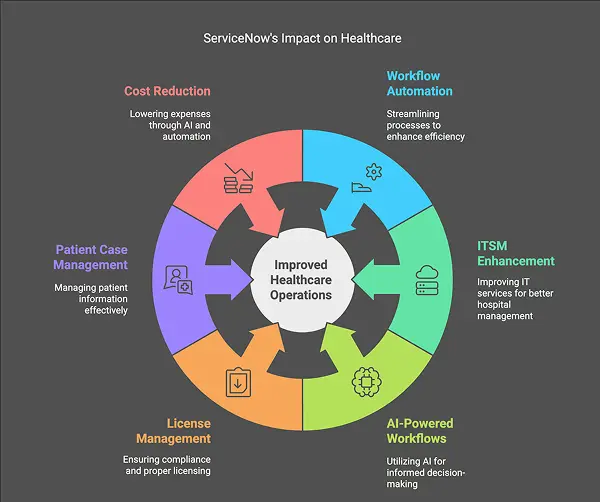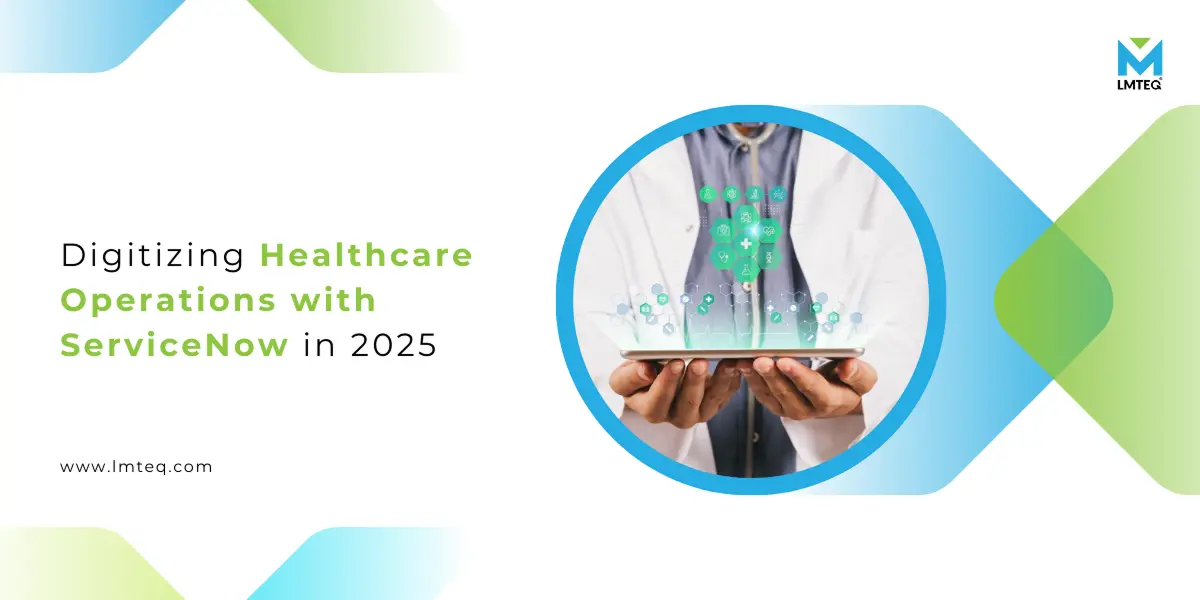The Future of Healthcare – From Paperwork to Automation
The Current Challenges in Healthcare Operations
Despite technological advancements, hospitals and healthcare facilities still face numerous operational challenges. Outdated systems, inefficient workflows, and rising patient volumes create significant bottlenecks in delivering quality healthcare.
Key Challenges Faced by the Healthcare Industry
- Manual Documentation & Paperwork Overload: Many hospitals still rely on paper-based record-keeping, leading to misfiled documents, missing patient histories, and compliance risks.
- Delayed Patient Services: A lack of streamlined workflows results in long wait times for patients, inefficient bed management, and scheduling conflicts for surgeries and consultations.
- IT Downtime & System Failures: Healthcare IT infrastructure needs to be up and running 24/7. Any downtime in IT systems can disrupt critical healthcare services.
- Regulatory Compliance Risks: Hospitals must comply with HIPAA, GDPR, and other global standards, but manual compliance tracking increases the risk of violations and penalties.
- Inefficient Case & License Management: Managing medical licenses, patient cases, and healthcare workflows manually creates delays and administrative burdens.
- High Administrative Costs: Hospitals spend billions annually on non-clinical administrative tasks, diverting funds that could be used for improving patient care.
These challenges highlight the urgent need for Healthcare Digital Transformation to enhance operational efficiency and improve patient care.
The Need for Digital Transformation in Healthcare
The global healthcare industry is plagued by inefficiencies. According to a study by McKinsey, nearly $1 trillion is wasted annually due to administrative inefficiencies in healthcare operations. Healthcare Digital Transformation is not a luxury but a necessity. The integration of AI and automation into healthcare workflows is reducing costs, improving patient care, and ensuring compliance with regulatory standards.
Real-World Scenario: The Challenge of Manual Processes
Consider a large hospital with multiple departments handling patient intake, insurance claims, and compliance reporting manually. The result? Misplaced records, billing errors, and compliance risks. ServiceNow Healthcare Solutions addresses these pain points by offering a unified platform that integrates patient data, automates workflows, and ensures seamless communication across departments.
How ServiceNow is Digitizing Healthcare Operations

1. Automating Healthcare Workflow Processes
Healthcare facilities operate on numerous workflows, including patient admissions, discharge procedures, and billing. ServiceNow Healthcare Workflows eliminate paperwork and manual intervention by automating these processes.
- Before ServiceNow: Hospital staff manually collect patient information, leading to errors and delays.
- With ServiceNow: Patient data is automatically recorded, reducing wait times and improving accuracy.
Beyond patient intake, ServiceNow AI for Healthcare assists in automating medication tracking, reducing the risk of prescription errors, and ensuring timely patient follow-ups. This automation translates into fewer human errors and improved patient safety.
2. Enhancing IT Service Management (ITSM) for Hospitals
IT outages in hospitals can disrupt critical services such as patient monitoring and medication administration. ServiceNow ITSM for Hospitals ensures that IT incidents are resolved quickly by automating ticketing, asset management, and service requests.
- Incident resolution times drop by up to 40% when ITSM automation is implemented.
- Predictive maintenance prevents system failures, ensuring uninterrupted patient care.
3. AI-Powered Healthcare Workflows for Smarter Decision-Making
AI and automation are transforming healthcare. AI-Powered Healthcare Workflows analyze patient data, predict treatment outcomes, and assist doctors in making informed decisions.
- AI in Healthcare Operations ensures that critical diagnoses are flagged earlier, improving patient survival rates.
- Predictive analytics help hospitals manage inventory for essential medicines.
- Automated workflows alert doctors about changes in patient conditions, ensuring faster intervention.
For example, AI-driven automation can track patient deterioration trends, notifying doctors before a critical situation arises. This proactive healthcare approach leads to better patient outcomes and reduced hospital readmissions.
4. Streamlining License & Compliance Management for Hospitals
Regulatory compliance is a major challenge in healthcare. ServiceNow for License Management for Hospitals automates certificate tracking, audit logs, and regulatory reporting.
- Ensures hospitals meet HIPAA, GDPR, and other regulatory requirements.
- Reduces risks associated with expired licenses and compliance failures.
- Provides automated audit trails for transparency and accountability.
Hospitals that fail to meet regulatory standards can face fines, legal issues, or even suspension of operations. Automating compliance with ServiceNow ensures hospitals remain audit-ready at all times.
5. Improving Patient Case Management with ServiceNow
Patient case management involves handling patient records, medication schedules, and follow-ups. ServiceNow Healthcare Case Management provides a centralized system to track patient interactions, reducing errors and enhancing patient care.
- Doctors and nurses have real-time access to patient records.
- Medication and treatment plans are updated automatically.
- Seamless communication between departments ensures comprehensive patient care.
For example, a post-surgery patient’s recovery plan is managed within ServiceNow, ensuring scheduled follow-ups, timely medication refills, and seamless coordination between specialists and general physicians.
6. Reducing Operational Costs with AI & Automation in Healthcare
By eliminating redundant manual processes, hospitals can reduce operational costs significantly. AI & Automation in Healthcare lower administrative burdens, allowing medical professionals to focus on patient care rather than paperwork.
- Hospitals using ServiceNow report a 30-40% reduction in administrative costs.
- AI-driven automation speeds up claims processing, reducing denials and improving cash flow.
- Automated inventory management prevents overstocking or stockouts of essential supplies.
The Road Ahead – A Fully Digitized Healthcare Ecosystem
The adoption of ServiceNow Healthcare Solutions is not just about improving efficiency-it’s about revolutionizing patient care. With AI-driven insights, real-time monitoring, and automation, healthcare facilities can provide faster, better, and more efficient services.
Hospitals that embrace digitizing healthcare operations will be able to meet the increasing demands of modern patient care while reducing operational costs. ServiceNow offers a scalable and flexible solution for healthcare providers worldwide.
FAQs
1. How does ServiceNow improve patient care?
ServiceNow automates workflows, ensuring patient records are updated in real-time, reducing administrative delays, and improving care coordination.
2. Is ServiceNow secure for handling patient data?
Yes, ServiceNow complies with HIPAA, GDPR, and other global healthcare regulations, ensuring data privacy and security.
3. Can ServiceNow integrate with existing hospital IT systems?
Yes, ServiceNow seamlessly integrates with EHR systems, insurance platforms, and compliance management tools, making it easy to adopt.

